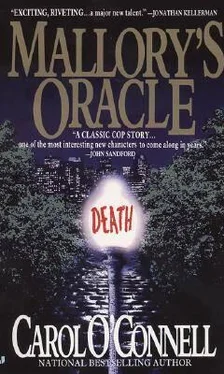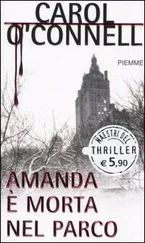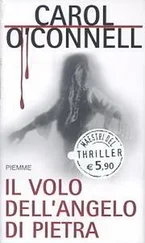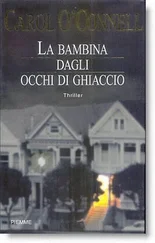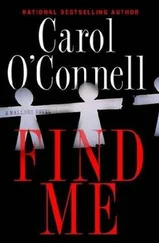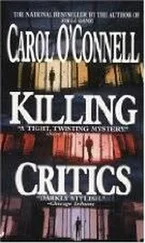"That seems a bit paranoid, doesn't it?"
"No. He's just a garden-variety control-freak. He's something very common in any community of humans. There's one of Herbert in every crowd. And all of us have some weak point, some fracture. Herbert's fracture is widening. I need to know why."
She sank back in the upholstery and looked up to the ceiling. With added focus, she seemed to be staring through the plaster and into Edith Candle's apartment on the third floor. Her next words were predictable. "I wish I knew what was written on the wall in Edith's apartment."
"Maybe we should talk to Edith."
"Not a good idea. She was the house mother for all the years she owned the building. Old habits die hard. She'd want to take care of it herself. I don't even want her in the same room with Herbert. I told you, he's ripe for an explosion. You can trust me to know my explosives."
Charles tilted his head to one side as he listened to what Henrietta was not saying. She was not saying it might be dangerous to bring Edith into the problem; she was tap-dancing all around it. Dance was not her forte. She was not saying that Edith was the source of the problem. She knew the relationship of family, and danced wide of it, and danced badly. It spoke well of Henrietta that she was no good at subterfuge. She didn't have the face to hide a bold-face lie, and neither did she have the dishonest agility to lie by omission.
He was surprised. He had always believed he knew Edith Candle so well.
"All right," he said. "I won't mention anything to Edith."
The tension about her mouth relaxed into an easy smile. Henrietta was her straightforward self again, done with dancing.
When he had closed the door on Henrietta, he turned to face Mallory, who was inches away from him. He'd never heard her coming up behind him. He wished he could put a bell on her neck.
***
Margot covered her eyes with one hand as she smashed the window leading into her bedroom. She cut her hand on the glass and never noticed. She slipped to the floor and into a deep sleep, not minding bare wood and the cold draft from the broken window. As she rolled in her sleep, the knife with the dried blood on it slipped from her pocket and thudded onto the floor. She slept on without dreams.
***
Riker picked up the old woman at her Gramercy Park apartment. More detectives had been sent to pick up the other three seance ladies, per Coffey's orders to keep them separated. Damn waste of time. The woman was silent on the ride in. Her round face was a mask of white powder. Her eyebrows had been drawn with a shaking hand. She had not asked to see a lawyer, but neither had she asked why he was dragging her into the police station. That was interesting enough to make a note at the next stop light. He jotted down the word scared.
When they arrived at the station he ordered a uniformed officer to round the women up from the separate corners, offices and cubby holes of the unit and put them all in the interview room together.
"Coffey won't like that," said the uniformed officer who had started shaving only the year before.
"Yeah, he will," said Riker. I'll take the heat if he doesn't."
He stood behind the one-way glass and watched the women file in and settle into a more comfortable silence. Minutes dragged by before the stiffness passed off and the elderly women began to talk easily amongst themselves. The conversation did not break off when an officer brought in a tray of covered styrofoam cups and a box of doughnuts from the deli across the street. Riker smiled and moseyed down the hall to Markowitz's office where Jack Coffey was waiting for him.
"You got all the old ladies from the seance?"
"Yeah."
"Put the Penworth woman in the interview room. I'll talk with her first."
"She's in there now."
He followed Coffey to the large room at the end of the hall and counted to three as the lieutenant looked in the window of one of the doors.
"All of them together," said a very testy Coffey on the third count. "I told you I wanted to see them separately." Jack Coffey looked through the glass of the interview room at four old women seated around the long table, chatting amongst themselves, excited, laughing.
"They're more talkative when they're all together," said Riker. "Make it more like a gossip session and you'll get more out of them."
"Riker, when I tell you – "
"Hold it, Lieutenant. You're gonna say that was Markowitz's style, right? Okay, so it's not the old man's command anymore and you're no Markowitz. Okay. But when we picked up the old ladies, one by one, they were like clams in the car. When they met up here, it all changed. They've been chattering about murder nonstop for the past twenty minutes."
"All right, Riker. We do it Markowitz's way." He looked back to the window. "Who's who?"
Riker had been primed for a fight, and now he felt somewhat let down because Coffey wasn't really such a bastard. He read off the names to match up with the woman who nodded constantly, the moon-faced woman, the one with the little head and the gigantic chest, and the skinny one with the high cheekbones who had a smart mouth and was his favorite.
They walked into the interview room and a wash of gossip running full spigot.
"Anne's death was the most spectacular," said the nodding woman whose slight palsy happily agreed with her sentiments in the rankings of recent bloody murders in the neighborhood.
Coffey took his place at the head of the table, and Riker took the next chair, notebook in hand. They politely waited for a lull in the conversation, and Coffey introduced himself.
A round face beamed on Coffey and one pudgy white hand rested on his arm. "You know, Lieutenant, for a while, we thought it was one of us."
"Oh, yes," said the lady of the high cheekbones. "That was rather early on, of course. Pearl hadn't died yet."
"You mean you regularly discussed this possibility?"
Riker smiled down at his notebook. Coffey was having a hard time with that.
"That's practically all we talked about between seances. You thought we were discussing needlepoint?" asked the woman described in Riker's notebook as "small head, big jugs".
"By the time Pearl died, we'd settled on other possibilities," said the nodding woman.
"Such as?" Coffey prompted.
"The Cathery boy."
Riker flipped back through the pages of his notebook. "Miss Whitman was Henry Cathery's alibi. She said she was with the kid in the park between 1:30 and 4:30 on the afternoon of June 30th. They played chess for three hours. Does that sound right?"
"Yes. Pearl was quite a player when she was young. She gave it up when she turned sixty. She had more tournaments on her resume than Henry did."
"As I recall," said the lady of the white-powder moon-face, "Henry went to some trouble to remind Pearl of the hours. Pearl had been a bit confused, but she finally decided that must have been the right time."
"Cathery had to remind her?"
"Their games were haphazard. He took his chess set to the park every day, but sometimes it was in the morning, sometimes in the afternoon. If Pearl was there at the same time, she'd give him a game."
"She told us she was positive about the time," said Coffey.
"I doubt that," said the thin woman. "You know how it is. No, you wouldn't, would you? When you start to get up there in years, every time you forget your keys – well, it must be senility. That's why it was so easy to convince Pearl that she was with Henry during those particular hours."
"Since Pearl's murder," said the nodding woman, "I see Henry in the park both morning and afternoon. Maybe he always went twice a day. I'm not sure. One gets so used to seeing him there."
"Right," said the moon. "His game with Pearl could just as easily have been in the morning."
Читать дальше
